Naturinda's Brave Struggle" chronicles the plight of a rare tree-climbing lioness ensnared by poachers in Uganda's Queen Elizabeth National Park. Despite valiant rescue attempts by biologists and wildlife authorities, Naturinda's injuries prove fatal, highlighting the grave dangers facing Africa's wildlife. Her story underscores the urgent need for conservation efforts to safeguard these magnificent creatures from human-induced threats.
Table of Contents
In a remote corner of Uganda's Queen Elizabeth National Park, amidst the expansive savannah and dense Acacia groves, Naturinda, a remarkable lioness with a unique talent for climbing trees, lived her extraordinary life. Her story is one of resilience and survival, deeply touching the hearts of all who knew her.
Discovering Naturinda's Unique Trait
Around 2014, Naturinda first caught the attention of wildlife enthusiasts with her exceptional ability to navigate the branches of Acacia trees. This behaviour, rarely observed in lions, set her apart as a symbol of strength and adaptability in the wild. Her graceful movements and commanding presence made her a favourite subject among photographers and researchers, who marvelled at her ability to perch high above the African savannah, surveying her domain with a regal air.
Naturinda Falls Victim to Poaching
Naturinda's tranquil existence took a tragic turn one fateful day in early January. While patrolling her territory in search of prey, she inadvertently stumbled upon a poacher's snare cunningly hidden among the tangled undergrowth.
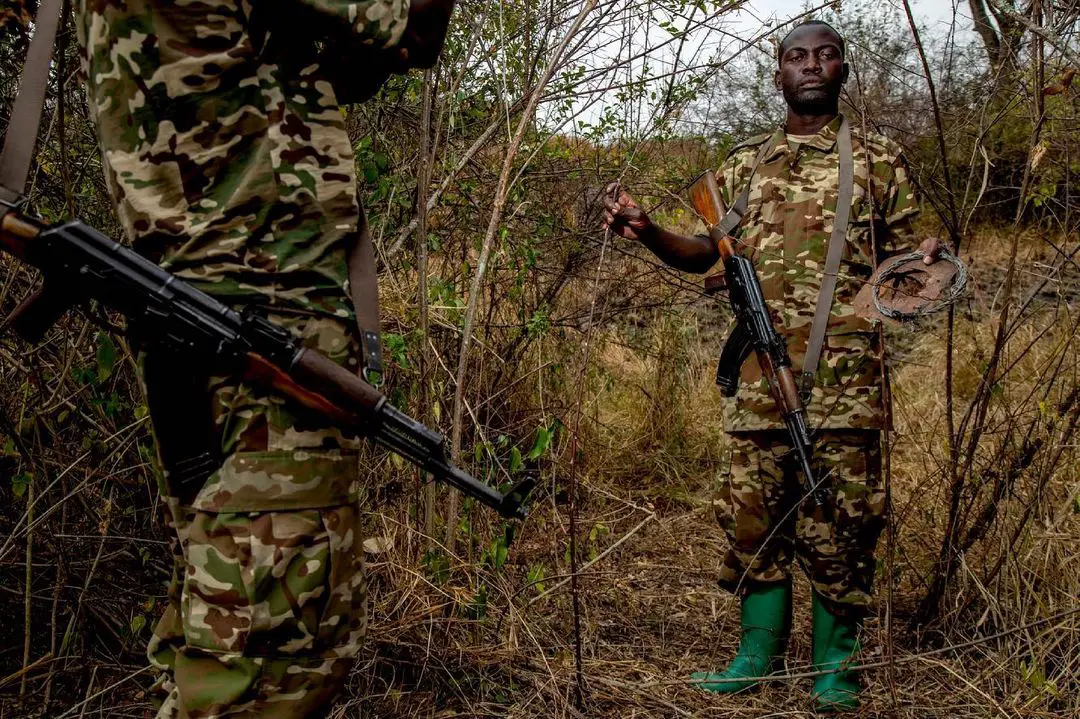
The cruel contraption swiftly ensnared her neck and face, leaving her immobilized against the unyielding trunk of an Acacia tree. For Naturinda, accustomed to the freedom of the open plains and the heights of the trees, this sudden entrapment marked a desperate and harrowing struggle for survival.
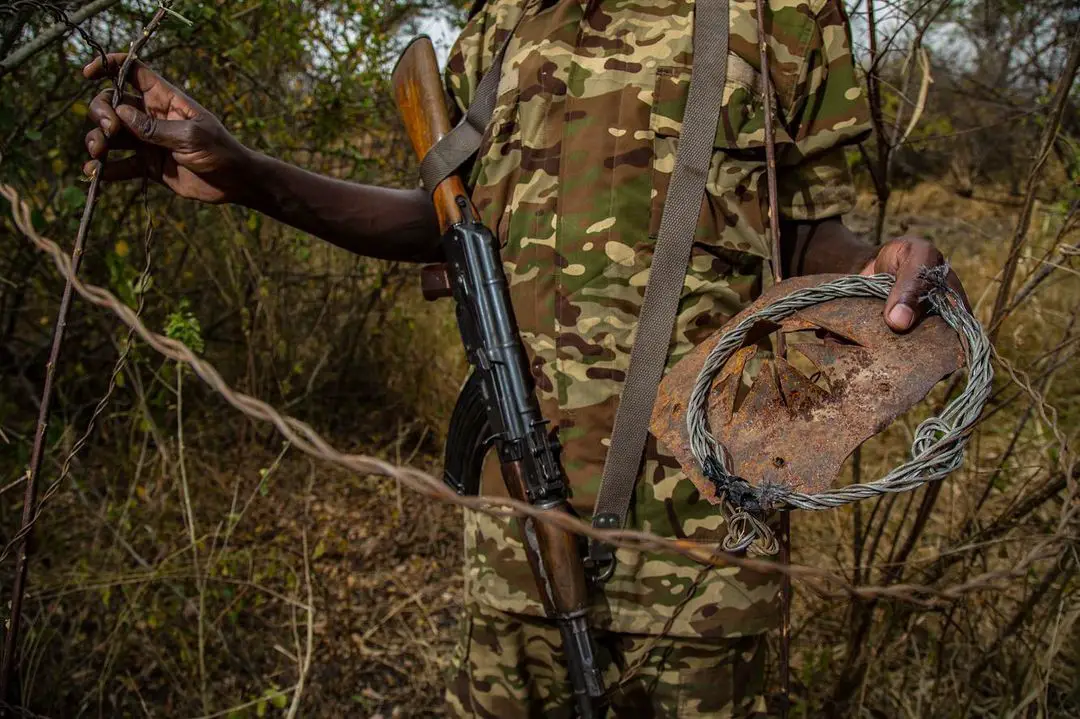
News of Naturinda's dire predicament spread quickly through the conservation community, sparking an urgent rescue mission coordinated by Ugandan biologists Mustafa Nsubuga and Sam Isoke, in close collaboration with the Uganda Wildlife Authority. Dr. Margaret Driciru, an experienced wildlife veterinarian, rushed to the scene to assess Naturinda's condition and provide crucial medical care. The team worked tirelessly to alleviate her suffering and free her from the snare's cruel grip.
Efforts to Save Naturinda
For seven agonizing days, Mustafa, Sam, and a dedicated team of wildlife experts and rangers maintained a vigilant watch over Naturinda, providing essential hydration and nourishment in a bid to sustain her strength and resilience. Despite their unwavering commitment and expertise, Naturinda's condition deteriorated further in early February, her neck showing signs of infection—a grim setback in her already precarious battle for survival.
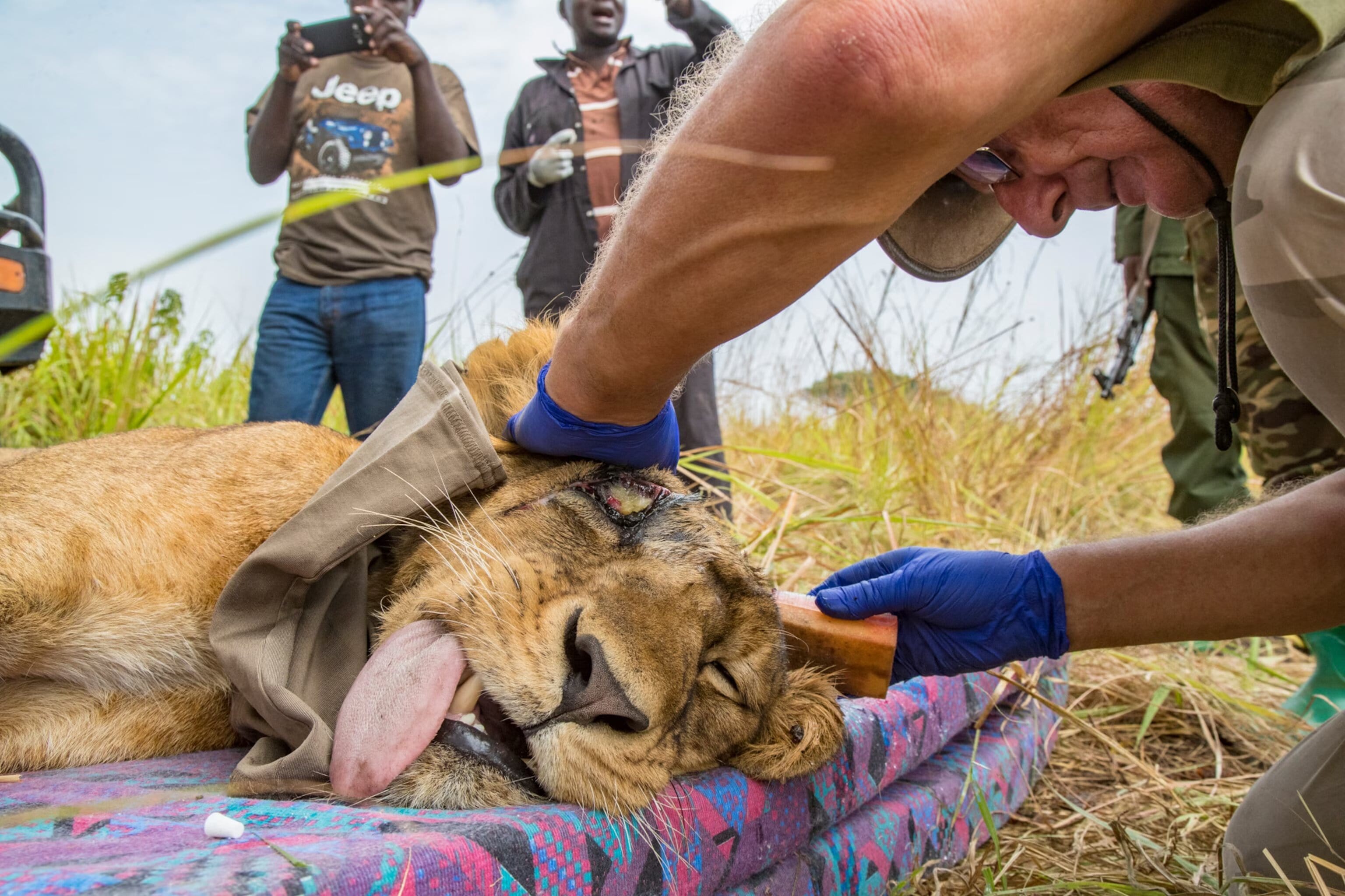
Determined not to give up on Naturinda, wildlife photographer Steve Winter, renowned for his captivating images of big cats in their natural habitats, joined forces with Dr. Ludwig Siefert and Dr. Alexander Braczkowski from the Uganda Carnivore Program to bolster the rescue efforts. Together, they reinforced the search for Naturinda, utilizing sophisticated tracking techniques and aerial surveillance to pinpoint her exact location within the vast expanse of Queen Elizabeth National Park.
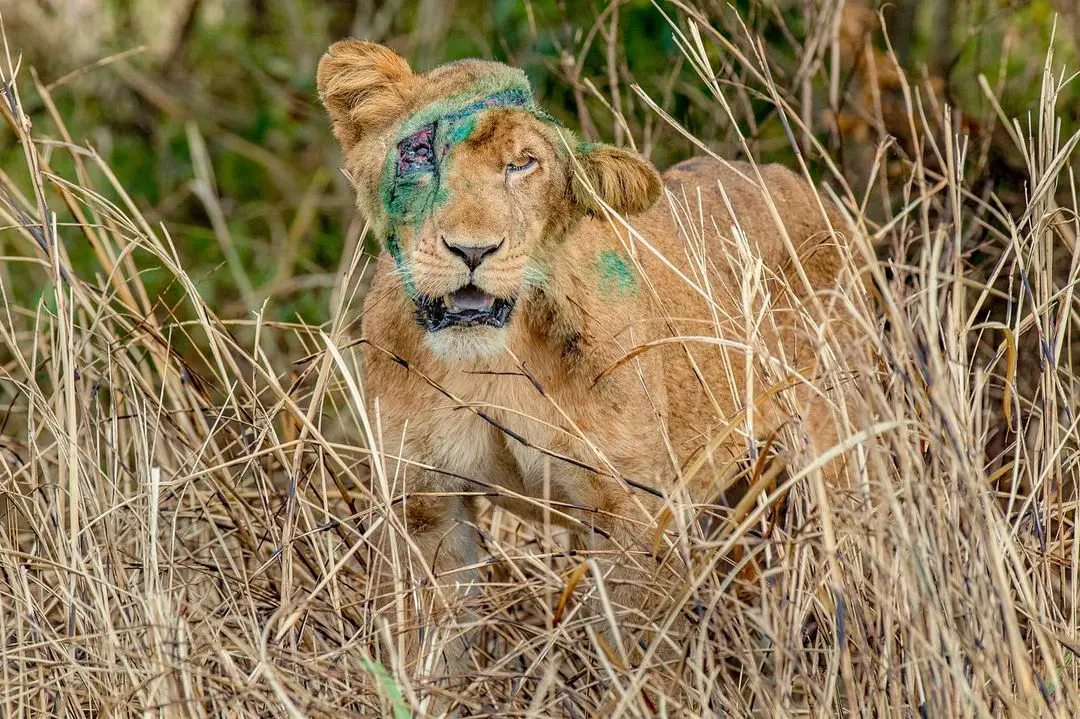
On February 8th, their relentless pursuit bore fruit when they successfully located Naturinda, albeit weakened and distressed from her prolonged ordeal. With every passing moment critical to her survival, the team mobilized swiftly to administer a tranquilizer dart, ensuring her safe immobilization for extraction. Amidst the tension and urgency of the moment, ranger Nicholas Nuwaijuka of the Uganda Wildlife Authority demonstrated extraordinary bravery as he scaled a towering Acacia tree to secure Naturinda with a specially designed harness.
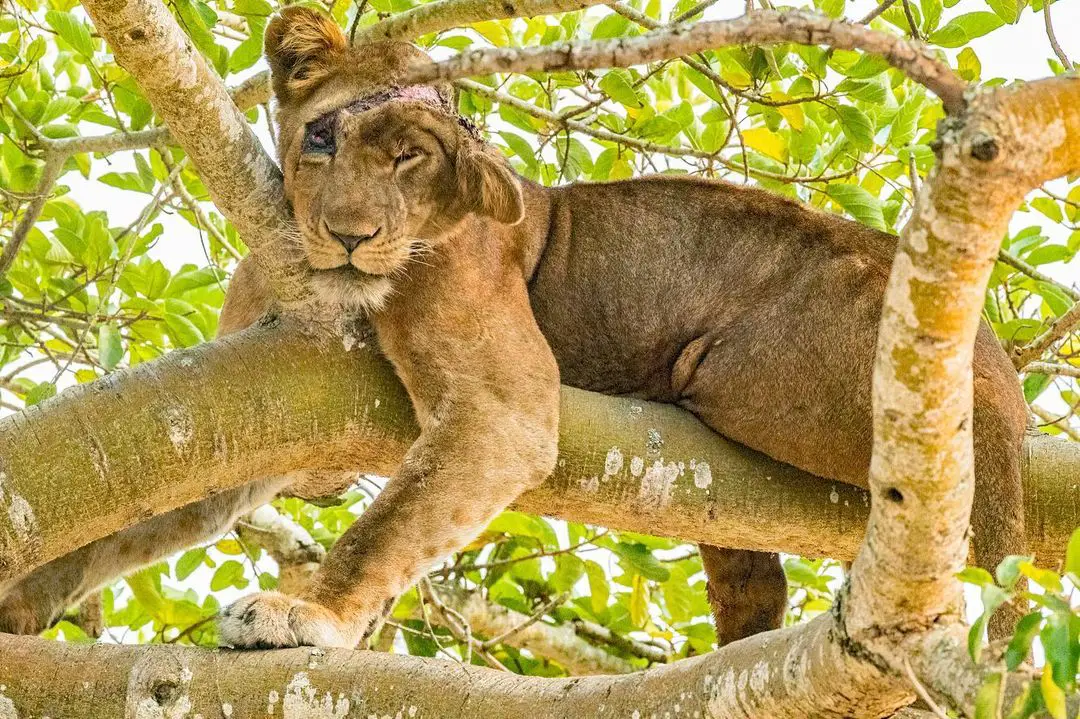
As the sun set on the horizon, casting long shadows over the African savannah, the rescue team improvised a daring plan to lower Naturinda safely to the ground. Leveraging a sturdy Land Cruiser and a strategically placed mattress, they carefully guided her descent, overcoming unforeseen challenges and obstacles with unwavering determination and skill.
Reflections on Naturinda's Legacy and Conservation Challenges
Despite the valiant efforts and heroic measures undertaken by those involved in her rescue, Naturinda's road to recovery proved to be fraught with challenges. Tragically, it is presumed that she succumbed to her injuries in the weeks following her rescue, her untimely passing serving as a stark and poignant reminder of the ongoing threats faced by Africa's endangered wildlife due to poaching and human-wildlife conflict.
Naturinda's indomitable spirit and unwavering courage in the face of adversity resonate deeply with all who witnessed her struggle. Her legacy extends beyond the boundaries of Queen Elizabeth National Park, galvanizing a renewed commitment to wildlife conservation and the preservation of habitats crucial to the survival of endangered species.
Protecting Africa's Wildlife Heritage
Naturinda's story serves as a powerful call to action—a testament to the urgent need for enhanced conservation efforts, strengthened wildlife protection laws, and community engagement initiatives aimed at mitigating human-wildlife conflict. As habitats shrink and threats intensify, safeguarding Africa's rich biodiversity demands collective responsibility and unwavering dedication from governments, conservation organizations, and global citizens alike.
In honouring Naturinda's memory, we pledge to safeguard the precious species that share our planet, ensuring that future generations can witness the awe-inspiring sight of lions roaming freely across the African savannahs. Together, we can rewrite the narrative of endangerment and extinction, forging a future where wildlife thrives in harmony with human communities.

